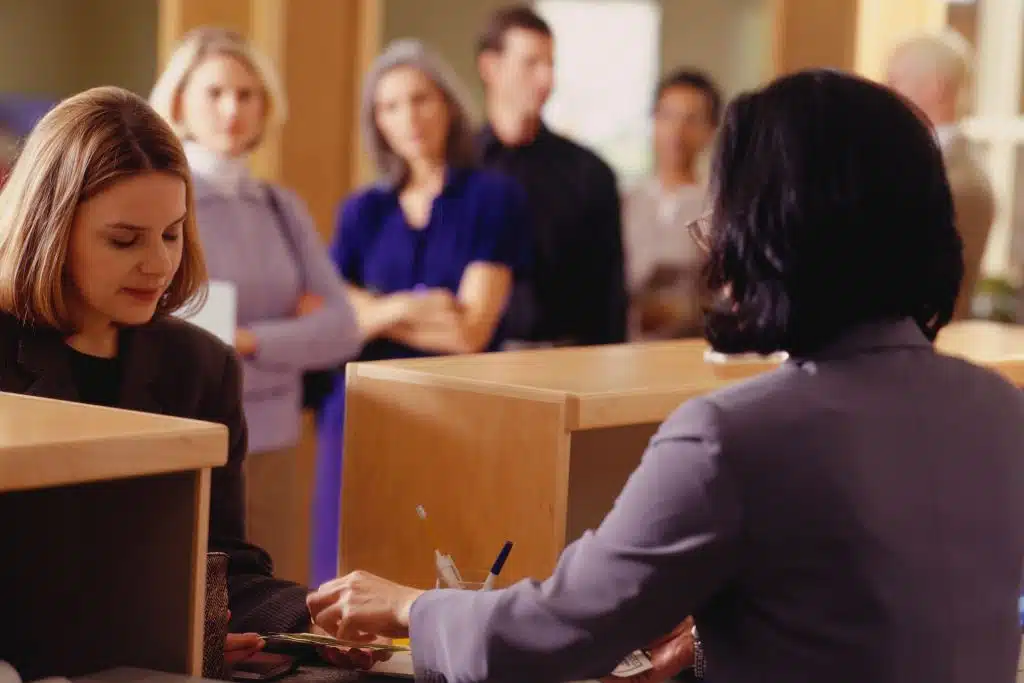How to Open a Bank Account
Opening a bank account is a simple way to keep your money safe and start building healthy financial habits. This guide explains what to bring, what to expect, and how to choose the right bank or credit union—whether you’re brand new to banking or just need a quick refresher.

- Most checking and savings accounts are insured up to $250,000 by the FDIC or NCUA.
- Opening an account is possible at banks, credit unions, or online-only institutions.
- You'll need a government-issued ID, Social Security number, and usually a small opening deposit.
- Many accounts offer features like online banking, mobile apps, and no monthly fees.
- Choosing the right account can help you avoid fees and build healthy financial habits from day one.
How to Open a Bank Account: Step-by-Step
-
Decide What Kind of Account You Need
Choose between checking, savings, or both. Think about features like online access, no fees, or ATM availability. -
Compare Banks, Credit Unions, and Online Options
Look for accounts with low or no monthly fees, convenient locations or apps, and FDIC or NCUA insurance. -
Gather Your Required Documents
Bring a government-issued photo ID, Social Security number, proof of address, and your opening deposit (if required). -
Apply In Person or Online
Visit a branch or apply on the bank’s website. Fill out the application and provide your documents. -
Make Your First Deposit
Deposit cash, a check, or transfer money from another account to activate your new account. -
Set Up Online or Mobile Banking
Register for online access, download your bank’s app, and create strong passwords for security. -
Start Using Your Account
Set up direct deposit, order checks if needed, and use your debit card or online tools to manage your money.
What to Expect When Opening a Bank Account
- Opening an account is usually fast and easy: Most banks offer quick online or in-person applications.
- You’ll need to provide ID and personal details: Be prepared with your Social Security number, address, and an opening deposit.
- You can often access your account right away: Many banks issue debit cards instantly or mail them within a week.
- Some banks offer signup bonuses or perks: Look for offers like no fees, interest, or rewards for new accounts.
- Online and mobile banking make management simple: Monitor your balance, deposit checks, and pay bills from anywhere.
Pro Tips & Common Mistakes to Avoid
- Compare fees and features before opening: Not all accounts are equal—check for hidden fees, ATM access, and digital tools.
- Choose an account with FDIC or NCUA insurance: This protects your money if the bank or credit union fails.
- Set up direct deposit for easier money management: Paychecks go straight to your account and may waive monthly fees.
- Start with a realistic opening deposit: Some banks require only $25—or less—to get started.
- Don’t forget to activate online or mobile banking: Secure digital access makes account management much easier and safer.
Starting Fresh: Destiny Opens Her First Bank Account
Destiny, a 19-year-old college student, had always used cash and prepaid cards. After getting her first part-time job, she wanted a safer, easier way to manage her paychecks.
She researched local banks and credit unions, comparing fees and features. Destiny chose a free student checking account with mobile banking and opened it online with her photo ID, Social Security number, and a $25 deposit. She set up direct deposit with her employer and activated her mobile app.
The result? Destiny quickly got her debit card, learned to check her balance on her phone, and felt more independent and secure managing her money.
Frequently Asked Questions
What documents do I need to open a bank account?
Can I open a bank account online?
How old do I need to be to open my own account?
How much money do I need to get started?
Is my money safe in a bank or credit union?
Ready to Open Your Bank Account?
Money Fit’s certified counselors can walk you through every step, help you choose the right account, and answer your banking questions—so you can feel confident getting started.
Talk to a Counselor




